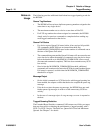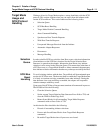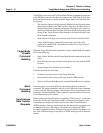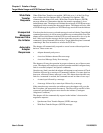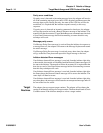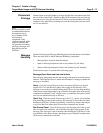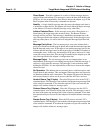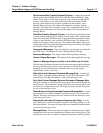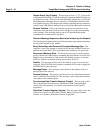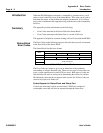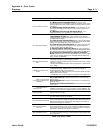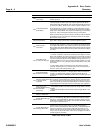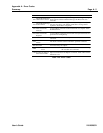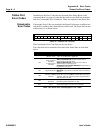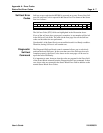
21020285 D User’s Guide
Chapter 8 Details of Usage
Page 8 - 18 Target Mode Usage and SCSI Protocol Handling
Simple Queue Tag (2 bytes) - This message revives a I_T_L_Q nexus for
a disconnected I/O process. It will be sent by the adapter immediately following
the Identify message. The host will send the Simple Queue Tag on all Target
Mode Response commands that are caused by a Target Mode selection that
used Queued Tagging. The adapter will send this specified message whenever
it must reselect the initiator during the processing of the Response command.
Restore Pointers - Directs the initiator to copy the most recently saved
command, data, and status pointers for the I/O process to the corresponding
active pointers. This message must be sent in a Target Mode Response
command with no data transfer specified.
Status or Message Sequences Sent to the Initiator (by the Adapter)
The following descriptions include all of the status/message sequences that may
be sent to the initiator by the adapter.
Busy Status Byte and Command Complete Message Byte - This
sequence is sent if the adapter is selected by an initiator and the host has not
enabled the Target Mode. This should inform the initiator to try again later.
Disconnect Message Byte - The disconnect message is sent just before
going to the Bus Free phase after a command descriptor block is received. The
adapter always disconnects (if allowed by the Identify message) to free the
SCSI bus while the command is being processed by the host.
Identify - This message will be sent to the initiator as part of a reselection
sequence. The LUN field of the response command will be used to supply the
LUNTRN field of this message.
Message Reject - This message is sent whenever the adapter receives a
message that is not allowed.
Restore Pointers - This message will be used to retry either detected parity
errors or Initiator Detected Errors. This message is sent during data transfers,
status phase, and command phase.
Synchronous Data Transfer Request (5 bytes) - This message will be
sent to the initiator in response to a Synchronous Data Transfer Request
received from the initiator, or to initiate a Synchronous Data Transfer
negotiation.
Wide Data Transfer Request (4 bytes) - This message will be sent to the
initiator in response to a Wide Data Transfer Request received from the
initiator, or to initiate a Wide Data Transfer negotiation.



